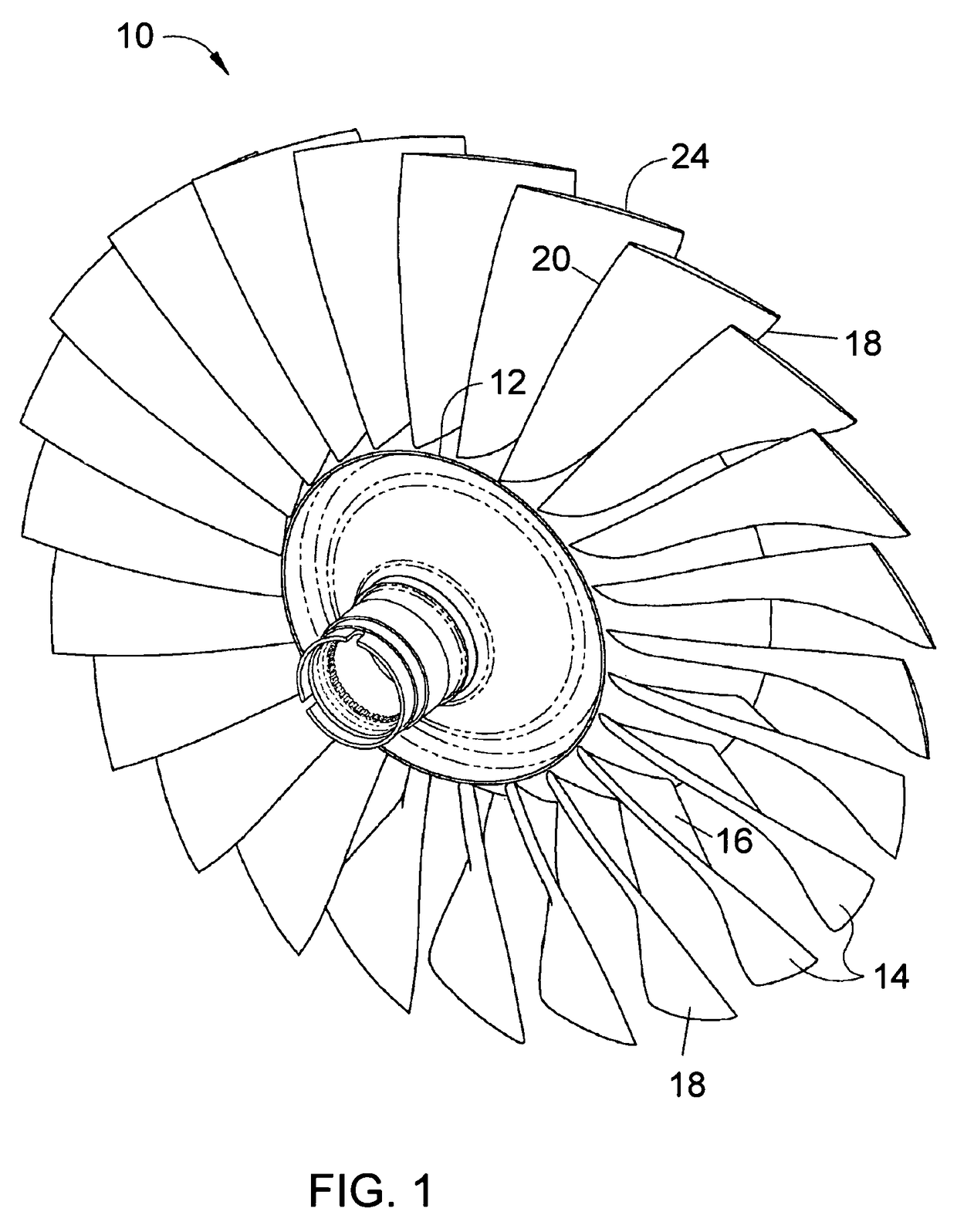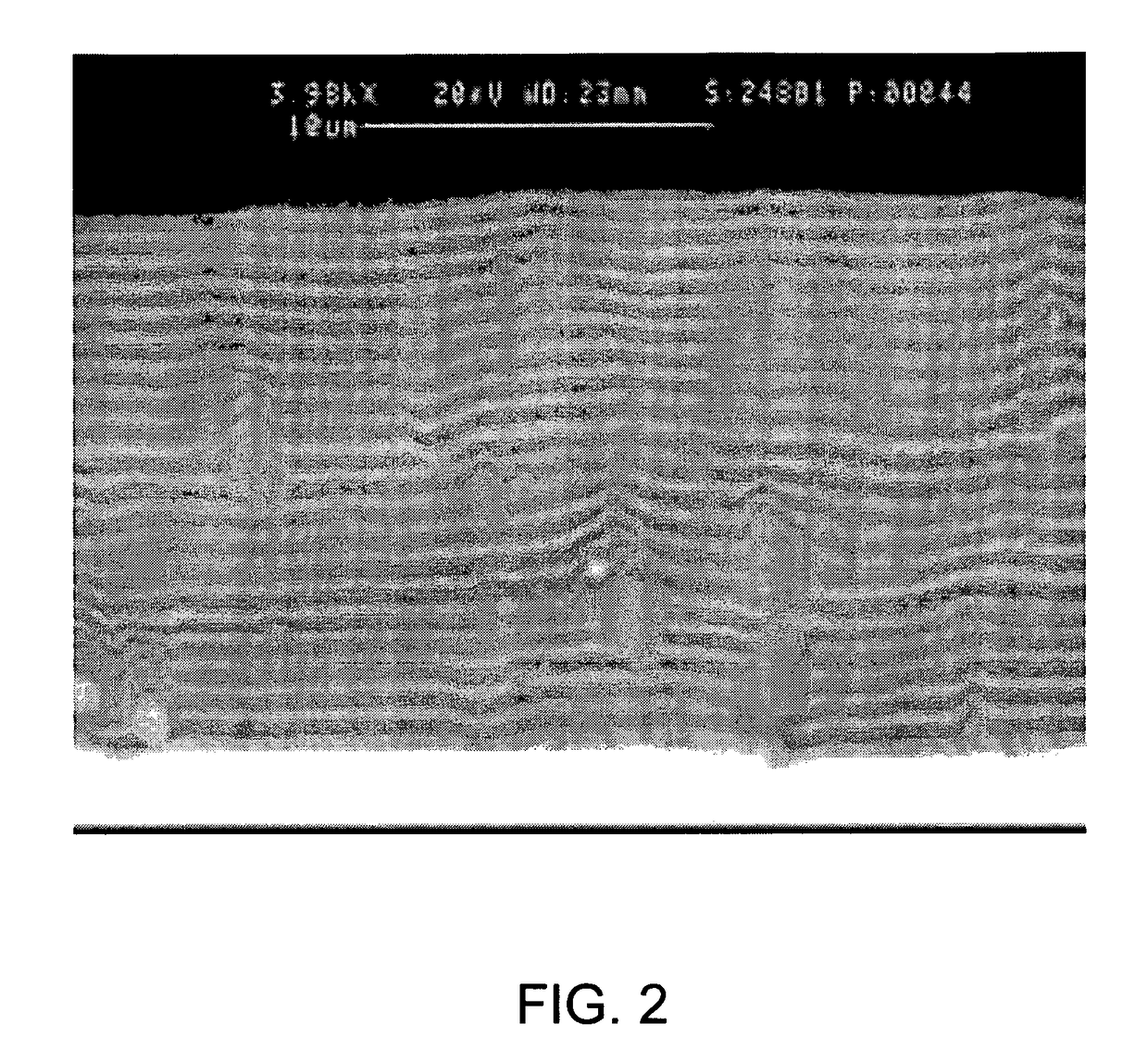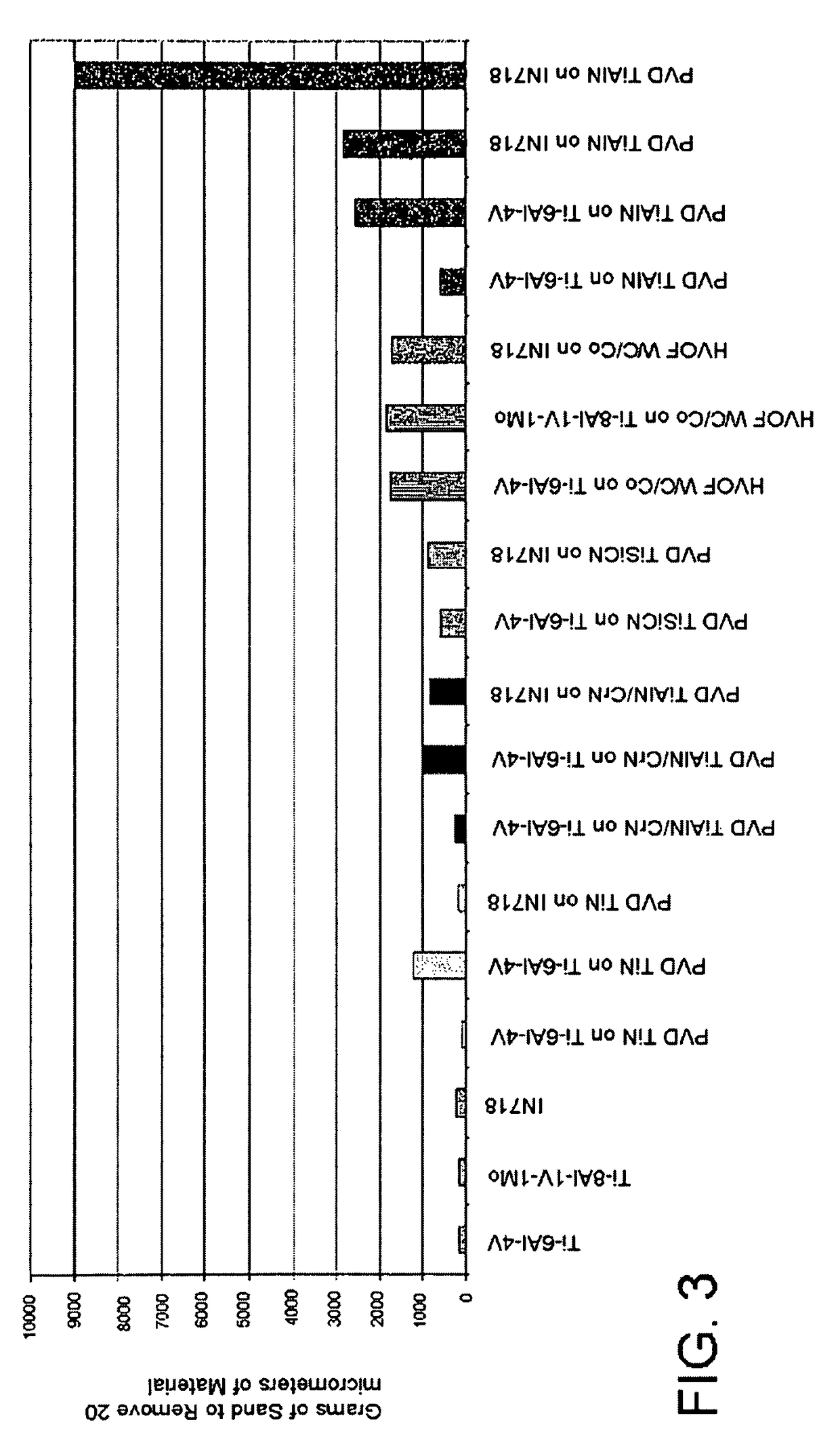Erosion- and impact-resistant coatings
a technology of erosion resistance and impact resistance, applied in the direction of wind motors with parallel air flow, wind motors with perpendicular air flow, liquid fuel engine components, etc., can solve the problems of reducing the fuel efficiency of the engine, reducing the efficiency of the compressor, and reducing the efficiency of the engin
- Summary
- Abstract
- Description
- Claims
- Application Information
AI Technical Summary
Benefits of technology
Problems solved by technology
Method used
Image
Examples
Embodiment Construction
[0016]FIG. 1 represents a blisk 10 of a gas turbine engine. The blisk 10 has a hub 12 from which blades 14 radially extend. The blades 14 can be fabricated integral with the hub 12, yielding what is also referred to as a bladed disk or an integrally bladed rotor. The term “integral” is used to denote multiple components that effectively form a single member without any mechanical discontinuity therebetween, whether the components were originally separately formed and then metallurgically joined or originally formed from a single workpiece. The present invention is particularly well suited for blisks used as low-pressure fans on aircraft gas turbine engines, but is applicable to blisks used in other applications. Furthermore, the invention can be useful for other applications that require impact and erosion resistance, for example, blowers, impellers, splitters, fan components, Pitot tubes, venturi tubes, particle separators, aircraft landing gear components, power transmission compo...
PUM
| Property | Measurement | Unit |
|---|---|---|
| thickness | aaaaa | aaaaa |
| thickness | aaaaa | aaaaa |
| thickness | aaaaa | aaaaa |
Abstract
Description
Claims
Application Information
 Login to View More
Login to View More - R&D
- Intellectual Property
- Life Sciences
- Materials
- Tech Scout
- Unparalleled Data Quality
- Higher Quality Content
- 60% Fewer Hallucinations
Browse by: Latest US Patents, China's latest patents, Technical Efficacy Thesaurus, Application Domain, Technology Topic, Popular Technical Reports.
© 2025 PatSnap. All rights reserved.Legal|Privacy policy|Modern Slavery Act Transparency Statement|Sitemap|About US| Contact US: help@patsnap.com



